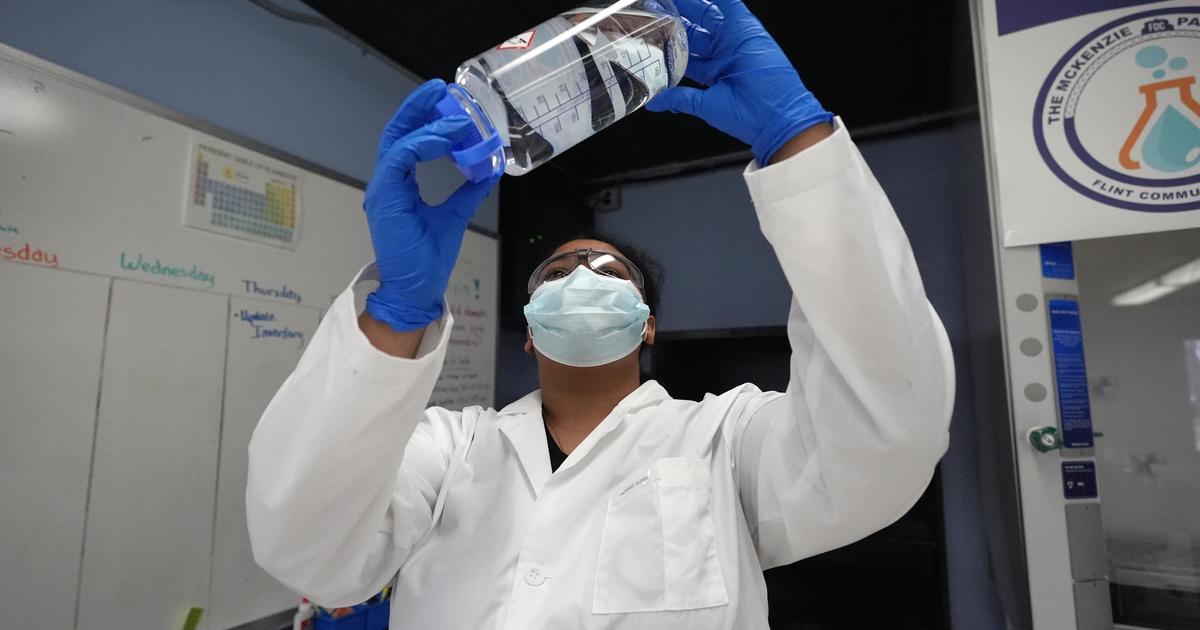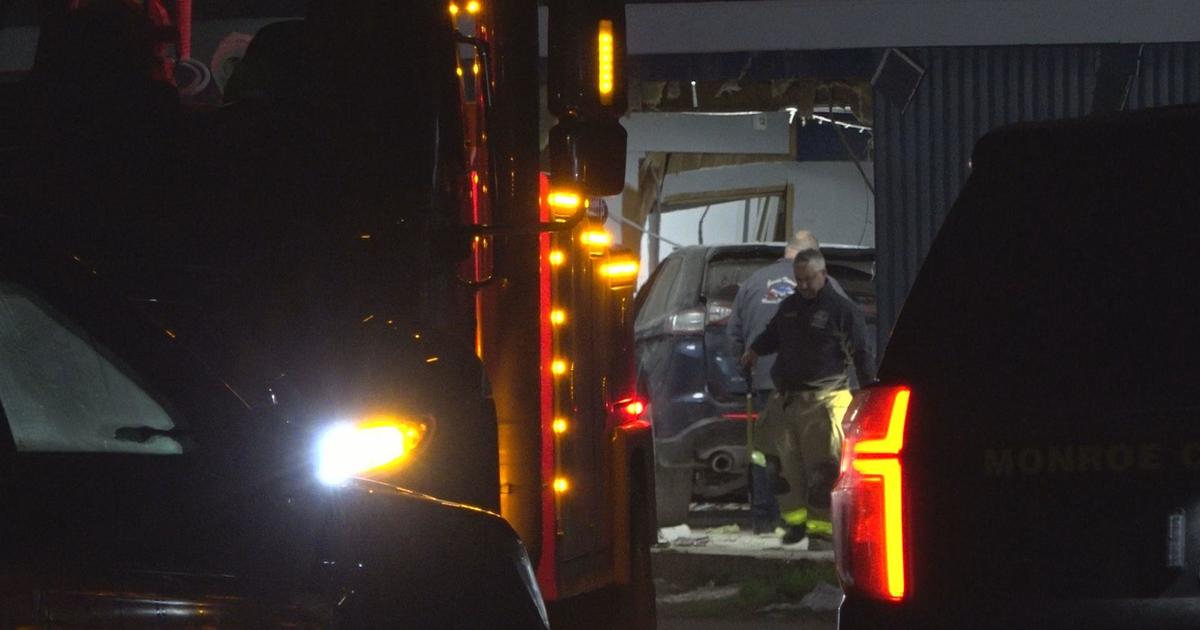Cop Recalls Devastating Night DeLisle's Children Drowned
By Christy Strawser
WYANDOTTE (WWJ) Daniel Galeski was on call as a Wyandotte police officer the night Lawrence DeLisle plunged his car into the Detroit River 25 years ago, killing his four small children.
When the first call came in, Galeski said it sounded like a routine traffic accident. Then he learned the car was in the water.
"Then I found out, the divers when they arrived, said there were some fisherman who said they had seen the car catapult into the water," Galeski recalled during an exclusive interview with WWJ's Roberta Jasina about the 25th anniversary of the DeLisle incident.
Eventually, the boat put down an anchor and hooked on something. It was the DeLisle station wagon, with its lights still on, buried under at least 30 feet of water.
It was so dark down there, rescuers had to feel their way around to find the doors and windows of the car, Galeski said. Then they started pulling up small bodies, one by one. "The children were limp, not breathing," Galeski said, adding first responders tried to do mouth to mouth resuscitation.
"None of them responded," he said.
The city came together in support of the children, rallying at a level that Galeski found shocking. He said today people still come up to him at least once a week and bring up the DeLisle case.
When he started the investigation, Galeski said he started first assumed it was a tragic accident, perhaps a wrong turn. DeLisle told him a story first about a leg cramp, later about his foot slipping, and somewhere in there was talk about a stuck accelerator, Galeski said.
The parents expressed plans to leave for a Florida vacation when they were released from the hospital.
But while DeLisle was in the hospital, nothing was found wrong with his leg, Galeski said, and a mechanical appraisal of the car found nothing amiss there either.
Galeski interviewed wife Suzanne DeLisle, who explained away the fact she survived by saying she was in pitch black when she got out of the car and thought if she could get out of the water, she could get help for her family. Eyewitnesses said she reached of the surface of the water screaming for her babies; her husband emerged without a word.
Then other relatives told the cop Lawrence DeLisle had issues, and had once tried to set their house on fire, he recalled.
"I immediately set up a polygraph," Galeski said, telling Jasina that DeLisle was willing.
Then something happened that legal analysts, the media, cops and the public have talked about for decades. DeLisle allegedly confessed.
Galeski disputes the timing of the alleged 12-hour interrogation that led to the confession, the length of which was used regularly as evidence a tired DeLisle was just giving in when he seemed to say he meant to drive into the river. It took an hour each way to get to the polygraph and back and they took an hour-long break for lunch, Galeski said. The confession was tossed out before the trial by Judge Robert Colombo, who didn't find it credible, but police had already outlined it for the media, hungry for details of the horrific incident.
The defense attorney says DeLisle was brainwashed into confession by a "hypnotic technique" during the questioning. Galeski finds that ridiculous. "Yeah, yeah, he was brainwashed, I'm an expert at that," Galeski said sarcastically to Jasina.
In his assessment, Galeski thinks DeLisle meant to kill himself and the children, that "something snapped," and he ended up saving himself. He said DeLisle was troubled, upset that he made $450 a week at the tire shop where he worked and his wife would quickly blow through much of it on "garbage stuff." "He was pressured by her," Galeski said. The parents had gotten into a tiff at a pharmacy right before the deadly crash when she spent money on a big haul of candy, he added.
In hindsight, would he change anything about the investigation? "Not really, I thought I was very thorough," Galeski said. "I don't think I errored in any of my investigations."
He added defense attorney Frank Eaman accused him of many things -- and none of them were correct. Galeski said, "To try to turn it around and make you at fault, you know, that was terrible."
Did it hurt him, Jasina asked? "No, it pissed me off," he said, adding, "I felt like, screw you."
Galeski concedes, through, that had it been a bench trial with just a judge instead of a jury, DeLisle would probably have been found not guilty. Judge Colombo, who now stands by the verdict, said at sentencing he wasn't sure the verdict was fair, Galeski recalled.
"We presented a good case even though he (Eaman) tried to cloud it and manufacture things ... That was something we had to deal with," Galeski said.
Did DeLisle get what he deserved? Galeski thinks one life sentence would have been enough.
And then there's this: "I have moments where I say 'Well, maybe, and this is just me talking, maybe it was an accident.' But you know you start thinking and putting it together, when he told me about the gas pedal, the cramp, that's manufactured, and I believe it he did it on purpose."
Galeski kept the infamous car almost all these years, thinking it could play a role in some future court proceeding. He said it was just very recently disposed of, after decades in police storage.
Meanwhile, DeLisle claimed innocence in a letter to Jasina, and his appeals attorney still thinks he has a solid chance of having his sentence commuted by the governor -- who has never publicly addressed the case.
CONTINUE READING




